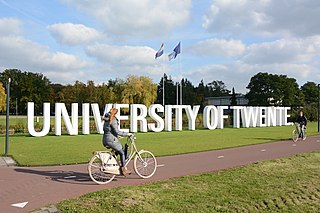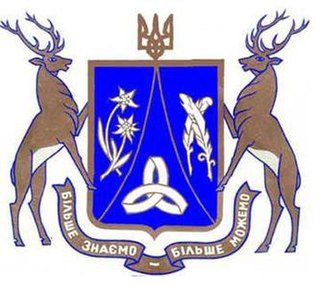This article contains content that is written like an advertisement .(October 2012) |

The European Consortium of Innovative Universities (ECIU), founded in 1997, is a network of 14 universities.
This article contains content that is written like an advertisement .(October 2012) |

The European Consortium of Innovative Universities (ECIU), founded in 1997, is a network of 14 universities.
According to the ECIU's website, [1] their mission is:
As of 2022 [update] The ECIU has 14 members including one overseas associate partner:
Associate partner universities
The ECIU Executive Board, consisting of the rector or vice rector and a local coordinator of each member institution, meets twice a year. The local coordinator is the contact person for information on activities, projects, and seminars. He informs the partner university about ECIU activities.
The activities of the consortium are organized within four core areas:
In addition to the Steering Committees, there are working groups for staff members of the member institutions.
The Eindhoven University of Technology, abbr. TU/e, is a public technical university in the Netherlands, situated in Eindhoven. In 2020–21, around 14,000 students were enrolled in its BSc and MSc programs and around 1350 students were enrolled in its PhD and EngD programs. In 2021, the TU/e employed around 3900 people.

The University of Twente is a public technical university located in Enschede, Netherlands. The university has been placed in the top 170 universities in the world by multiple central ranking tables. In addition, the UT was ranked the best technical university in The Netherlands by Keuzegids Universiteiten, the most significant national university ranking. The UT collaborates with Delft University of Technology, Eindhoven University of Technology and the Wageningen University and Research Centre under the umbrella of 4TU and is also a partner in the European Consortium of Innovative Universities (ECIU).

The University of Beira Interior is a public university located in the city of Covilhã, Portugal. It was created in 1979, and has about 6,879 students distributed across a multiplicity of graduation courses, awarding all academic degrees in fields ranging from medicine, biochemistry, biomedical sciences and industrial design to aeronautical engineering, fashion design, mathematics, economics and philosophy. The university is named after the historical Beira region, meaning Beira Interior, the most interior area of Beira, mainly composed by the district of Guarda and the district of Castelo Branco, in today's Centro region.
The European University Association (EUA) represents more than 800 institutions of higher education in 48 countries, providing them with a forum for cooperation and the exchange of information on higher education and research policies. Members of the Association are European universities involved in teaching and research, national associations of rectors, and other organisations active in higher education and research.
In the European Union education is at the responsibility of its Member States and their Ministries of education that they have; in such, the European Union institutions play only a supporting and overseeing role. According to Art. 165 of the Treaty on the Functioning of the European Union, the Community
shall contribute to the development of quality education by encouraging cooperation between Member States, through actions such as promoting the mobility of citizens, designing joint study programmes, establishing networks, exchanging information or teaching languages of the European Union. The Treaty also contains a commitment to promote life-long learning for all citizens of the Union.
A Studentenwerk or Studierendenwerk is a state-run non-profit organization for student affairs in Germany. Each Studentenwerk is organized at the local level so that it covers one or more universities. The umbrella organization for the 58 local Studentenwerke is the German National Association for Student Affairs, which was founded in 1921.
Education in Armenia is held in particular esteem in Armenian culture. Education developed the fastest out of the social services, while health and welfare services attempted to maintain the basic state-planned structure of the Soviet era, following Armenia's independence in 1991. Today, Armenia is trying to implement a new vision for its higher education system while pursuing the goals of the European Higher Education Area. The Ministry of Education and Science oversees education in the country.

The University of Pristina is a public university located in Pristina, Kosovo. It is the institution that emerged after the disestablishment of the University of Pristina (1969–1999) as a result of the Kosovo War. The inauguration of the university was a historical occurrence not only for the people of Kosovo, but for the whole Albanian nation. On 15 February, the solemn Parliament session took place, which is also proclaimed as The University of Pristina's Day. In the composition of the newly established University of Pristina were faculties with their headquarters in Pristina: the Faculty of Philosophy, Faculty of Law and Economics, Faculty of Engineering and Faculty of Medicine. Now the University of Pristina has 17 faculties, of which 14 are academic faculties and 3 are faculties of applied sciences. Contained within the emblem is a translation of the name into Latin, Universitas Studiorum Prishtiniensis.

The Medical University of Varna (MU-Varna) is a Bulgarian state school for higher education dedicated to training specialists in the fields of medicine and healthcare who graduate with the educational and qualification degrees of Master, Bachelor and Professional Bachelor. The university has a legal entity status with the following scope of business activities: training of cadres and professional qualification; training of PhD students; postgraduate education for medical and non-medical cadres; conducting medical diagnosis, prevention, consultation, rehabilitation, and expert services at the university hospitals; scientific research and applied sciences; international cooperation in the field of education and science; administrative, social, sport, publishing, information, and other activities.
Scholars at Risk (SAR) is a United States-based international network of academic institutions organized to support and defend the principles of academic freedom and to defend the human rights of scholars around the world. Network membership includes over 530 higher educational institutions in 42 countries.

Uzhhorod National University is a Ukrainian state higher educational institution in the city of Uzhhorod in Ukraine.
The Talloires Declaration on the Civic Roles and Social Responsibilities of Higher Education is a document which commits its university signatories to expanding and strengthening their civic engagement and social responsibility work through teaching, learning, research, and service.

CIFE - the Centre international de formation européenne is a not-for-profit European institution of higher education and research established in 1954. CIFE encompasses educational and research activities promoting European integration and governance, multilingualism and student mobility. CIFE educates European and international students as future Policy Officers in European institutions and international organisations, a professional title which is recognised by the French state.
MERLOT is an online repository and international consortium of institutions of higher education, industry partners, professional organizations, and individuals. MERLOT partners and members are devoted to identifying, peer reviewing, organizing, and making available existing online learning resources in a range of academic disciplines for use by higher education faculty and students.

The Precarpathian National University is a public research university in Ivano-Frankivsk. It is one of the oldest institutions of higher education in Western Ukraine.

The China-EU Institute for Clean and Renewable Energy at Huazhong University of Science & Technology is an education and research institute located in Wuhan, China, created in July 2010 and hosted in Huazhong University of Science and Technology. ICARE is the third Sino-European institute being created in China after the China-EU International Business School in Shanghai in 1994 and the China-EU School of Law in Beijing in 2008. ICARE project has a 5-year funding from EU and Chinese government.

EUNIS is the European University Information Systems organisation. Their mission is to help member institutions develop their IT landscape by sharing IT knowledge and experience and working together. The association counts more than 2,000 people from 120 different European Institutions and 18 National/Regional Organizations across 36 Countries.

The LudovikaUniversity of Public Service is a higher educational institution in Budapest, Hungary. Established in 2012, it is one of the youngest universities in Central and Eastern Europe; however, its faculties as former independent colleges look back much earlier.

Tyumen State University, also known as the University of Tyumen, is a comprehensive and research-intensive university in Tyumen, Russia. The University of Tyumen was the first university in Tyumen Oblast and was founded in 1930. Nowadays the UTMN consists of 15 institutes. The total number of students at the university is more than 27,000, including more than 1,900 international students. The total number of faculty and staff is more than 2,000. Today the UTMN trains specialists in 175 fields. The UTMN offers various forms of study: full-time, part-time, distance education, master's degree, undergraduate education, graduate, doctorate, advanced training, and second degree. The University is one of the participants of the Project 5-100 – the program of improving international competitiveness of the Russian institutions of higher education among the world's leading research and education centers.

The National Agency for Quality Assessment and Accreditation is the authorised agency of the Spanish government whose aim is to provide external quality assurance for the Spanish higher education system and to contribute to its constant improvement through evaluation, certification and accreditation.